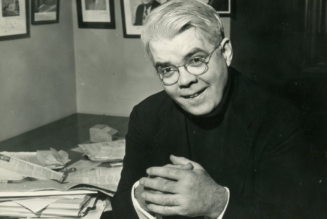Ever since Superman debuted in 1938, pop-culture has been obsessed with superheroes. At first superheroes dominated the “comic” newspaper strips and then eventually those strips were compiled into what would become the first “comic books.”
Once movies and television became an essential part of modern entertainment, it didn’t take long for superheroes to make the leap to the big screen. More than 70 years later superheroes continue to captivate the modern imagination and an entire industry is focused on making them as profitable as possible.
Why are superheroes so popular?
To answer that question, it’s important to go back a step further and ask, “What is a superhero anyway?“
What is a superhero?
The Merriam-Webster dictionary defines a superhero as, “a fictional hero having extraordinary or superhuman powers.” This is a good, basic definition, but it would be helpful to hear from one of the most well-known superhero creators, Stan Lee.
Stan Lee writes in the book What is a Superhero? published by Oxford University Press, “A superhero is a person who does heroic deeds and has the ability to do them in a way that a normal person couldn’t. So in order to be a superhero, you need a power that is more exceptional than any power a normal human being could possess, and you need to use that power to accomplish good deeds.”
There are “rules” for what those powers could be or where they originate. For example, while Spider-Man famously received his powers from a radioactive spider, Batman and Iron-Man both rely on their gadgets to accomplish their heroic deeds.
Our own superheroes, Phantom Phoenix and Medal Knight, similarly possess extraordinary powers through their remarkable intellects and mechanical ingenuity.
Whatever their superhuman powers might be, the primary motivating factor behind all superheroes is their desire to “accomplish good deeds.”
As Uncle Ben would say, “With great power comes great responsibility.“
Why are superheroes so popular?
For Stan Lee, he believed the reason why superheroes are so popular is because of previous generations’ love of fairy tales.
I think people are fascinated by superheroes because when we were young we all liked fairy tales, and fairy tales are stories of people with superpowers, people who are super in some way—giants, witches, magicians, always people who are bigger than life…superhero stories, to me, are like fairy tales for grown-ups.
While there might be some truth to that statement, it’s possible this fascination with superheroes goes even deeper into the human soul.
James L. Papandrea reflects on this reality in his book, From Star Wars to Superman published by Sophia Institute Press. He believes superheroes are most popular due to their resemblance to Jesus Christ.
For many people, the familiar Marvel and DC superheroes are the most obvious Christ figures because they are, in their essence, saviors.
Papandrea explains how, “all superhero stories begin with the assumption that humanity needs to be saved. Whatever the threat, humans can’t save themselves.”
In Christian theology, this is a basic truth, that humanity cannot save themselves on their own. Humans are in need of a savior, but instead of a broken superhero, we need Jesus Christ.
The superhero phenomenon strikes at the core of our being, bringing to mind our innate desire to be saved out of the darkness of our lives. All superheroes in some way point back to Jesus Christ; they are “echoes” of his mission to save humanity.
At the same time, superheroes can encourage us in our own personal “hero’s journey.” Christ calls all of us to be “heroic” in our daily lives, picking-up our cross to follow him. It’s not easy following in Jesus’ footsteps and requires the extraordinary grace that God gives to us. We can not save ourselves, but with God at our side, we can do anything that is true, good or beautiful.
Be strong and of good courage; be not frightened, neither be dismayed; for the Lord your God is with you wherever you go.
Joshua 1:9










